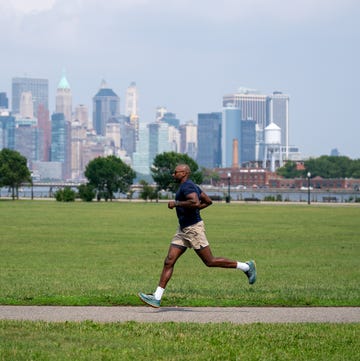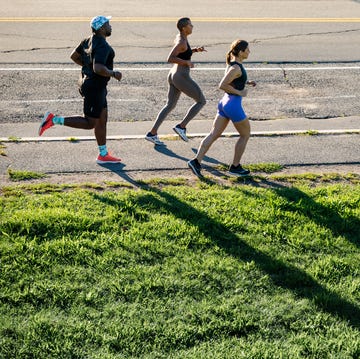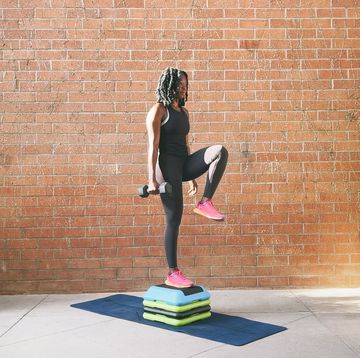Recently, I sucked. As soon as I started to run the 2024 New Balance 5th Avenue Mile in New York City, I lost my breath. I didn’t even make it through two blocks before I had to slow down, then watch the backs of other runners fade away. I spent so much time walking that I was reduced to nothing but my own worst thoughts: How embarrassed I was. How out of shape. How I have no friends, my life has no meaning, and my running is never going to improve.
Did I spiral? Well, yes, of course I did! It took me 13 minutes to walk a mile.
A few days later, looking for some running advice, I told a coach with whom I’m friendly about how badly I felt. In response to my sadness, she said, “But you did great!”
Now, in case you need a reminder, “great” means “considerably above or better than average.” In my head and at that moment, there was no reality-based metric in which I had done “great.” The one person who responded appropriately to my suckiness was the young spectator who shouted at me while I walked my long mile during the race, “Hey! You’re better than me!” because she was merely standing still. That stranger made me feel better than the run coach did.
Why, I wondered, do some people insist on being cheerful in response to another person’s sadness?
“The term is toxic positivity,” says Mike Gross, PsyD, a clinical and sports psychologist at Princeton University, and founder and director of TriState SportPsych. “Some people are uncomfortable with negative emotions, and so they invalidate your sadness or disappointment,” Gross says. “Their response is disingenuous, and it comes at the expense of your well-being because we have to process our feelings in order to grow.”
In fact, Gross adds, even though the person expressing toxic positivity wants to make the disappointed athlete feel better, the “suppression makes a person feel worse because they are alone in their reality.”
Alone. That was exactly how I felt. None of my fellow runners said, “I know how you feel.” Since I had no one with whom to process my feelings, I came to the conclusion that as much as I love running, I might just quit racing. Give up on my bucket list races, such as the Bay to Breakers 12K and Berlin Half Marathon.
“I think we’re socialized to believe these emotions are bad, so we do anything to make them go away,” Gross says. Avoiding negative feelings, though, is how we stay stuck in sadness or disappointment. For both the person who is sad and the person who is dismissing the sadness, “it’s better to dive in,” Gross adds. “Diving in is the way out.”
Gross, who works with athletes at all levels, validated my feelings and then suggested that rather than make a decision about my racing future, I begin to look at what is getting in the way between practice and performance. He said that I may be experiencing anxiety or fear or disappointment, all of which are momentary. “You might want to consider targeting that rather than avoiding competition altogether.”
His validation, coupled with his objective observation, cracked open my shut-down, frustrated brain. Maybe I do have something I need to explore in this area of my life.
After the mile, it would have been very helpful if one of my runner acquaintances had told me how they moved forward after disappointment. Did they hire a coach? Try a new training plan? I would have appreciated that conversation a lot.
Additionally, here is one response that almost always works to make people feel better, no matter the situation, Gross says: “You’re doing better than you think.”
I found this short phrase quite comforting. It reminded me that I didn’t even make it to the starting line of the 2023 race because I was too self-conscious of my speed.
Immediately after the mile, I told myself I’d never race again and certainly never run down 5th Avenue, but by looking at my experience from a new perspective while working through performance anxiety, I got unstuck. I realized that while my 2024 race didn’t go as planned and made me feel embarrassed and disappointed, I also showed up, and I finished. Sometimes the two go hand in hand. Now there is no way I won’t show up for myself in 2025. No matter what happens, I’ll be doing better than I think.
Donna Raskin has had a long career as a health and fitness writer and editor of books and magazine articles. A certified run coach who has practiced yoga for many years, she also loves to lift weights, dance, and go for long walks with her hound dog, Dolly.













